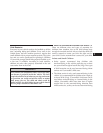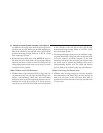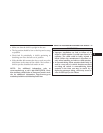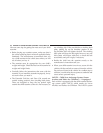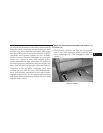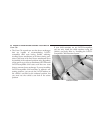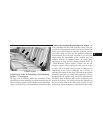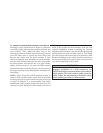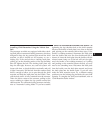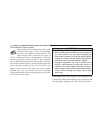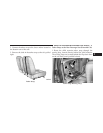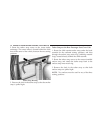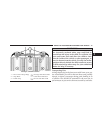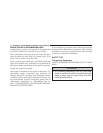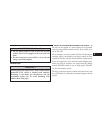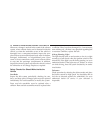
Installing Child Restraints Using the Vehicle Seat
Belt
The passenger seat belts are equipped with either cinch-
ing latch plates or automatic locking retractors, which are
designed to keep the lap portion tight around the child
restraint, so that it should not be necessary to use a
locking clip. If the seat belt has a cinching latch plate,
pulling up on the shoulder portion of the lap/shoulder
belt will tighten the belt. The cinching latch plate will
keep the belt tight; however, any seat belt system will
loosen with time, so check the belt occasionally and pull
it tight if necessary. Pull the belt from the retractor until
there is enough to allow you to pass through the child
restraint and slide the latch plate into the buckle. Then,
pull the belt until it is fully extended from the retractor.
Allow the belt to return to the retractor, pulling on the
excess webbing to tighten the lap portion around the
child restraint. For automatic locking retractor seat belts,
refer to ЉAutomatic Locking ModeЉ. If you have trouble
tightening the lap/shoulder belt on the child restraint
because, the buckle or latch plate is too close to the belt
path opening on the restraint, follow these steps. If the
buckle is webbing-mounted, disconnect the latch plate
from the buckle and twist the short buckle-end belt to
shorten it. Insert the latch plate into the buckle with the
release button facing out. If the belt still can’t be tight-
ened, the buckle is not webbing-mounted, or if pulling
and pushing on the restraint loosens the belt, you may
need to do something more. Disconnect the latch plate
from the buckle, turn the latch plate around, and insert
the latch plate into the buckle again. If you still can’t
make the child restraint secure, try a different seating
position or use the locking clip provided with your child
restraint. To complete the child seat installation, refer to
ЉChild Restraint Tether AnchorЉ.
2
THINGS TO KNOW BEFORE STARTING YOUR VEHICLE 69



